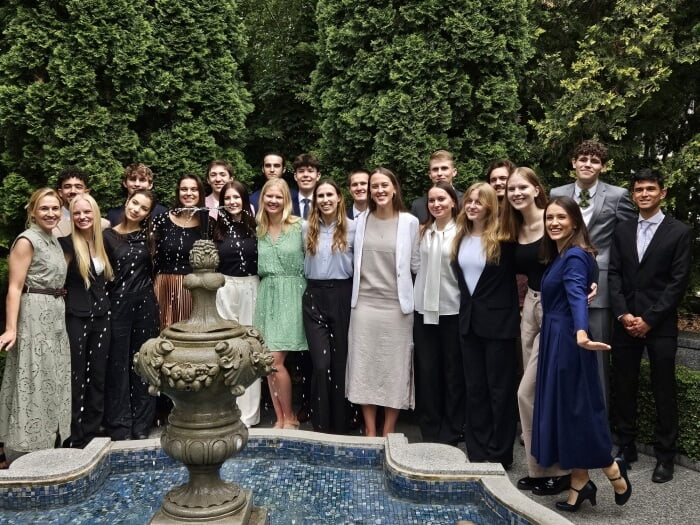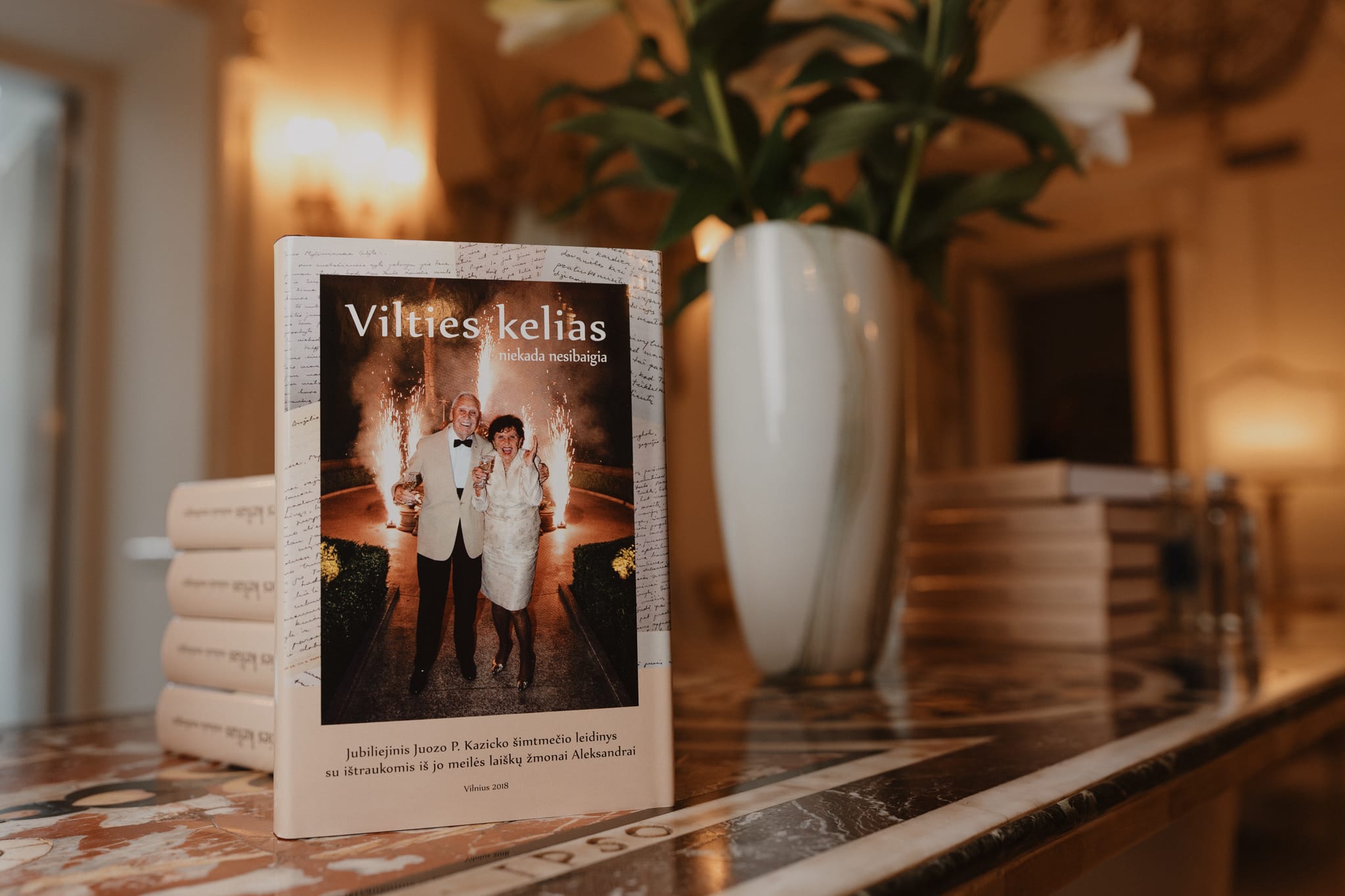Tradition of Philanthropy: Kazickas Family’s Example and Lessons for Lithuania
What does it mean to measure wealth not in money, but in values? This question was discussed at an event organized by the Kazickas Family Foundation and the law firm Sorainen, attended by Joseph M. and Lucy Kazickas — the foundation’s trustees who continue the philanthropic tradition started by the late Dr. Juozas Kazickas.

At the same time, Sorainen partner and attorney Jurgita Karvelė emphasized that for family businesses, goodwill alone is not enough — a clear legal framework is also essential to ensure the continuity of values and long-term contributions to society.
Values Matter More Than Wealth
Drawing on the example of the late Dr. Juozas Kazickas — whose contribution to Lithuania’s independence and national development is widely recognized — the Kazickas family stressed that wealth itself is not a value. What matters most is how much of it is returned to society, and in their case, to Lithuania.
In the late 20th century, Dr. Kazickas — a successful entrepreneur with a PhD in Economics from Yale University who built his business from the ground up — decided to dedicate his accumulated resources to Lithuania, the country he and his wife Alexandra considered their true home. Thus, the Kazickas Family Foundation was born, continuing its mission to this day: promoting education, culture, social projects, and community engagement.
During the discussion, Joseph M. Kazickas emphasized that the family’s philanthropic work is rooted in values passed down from generation to generation.
“I don’t want people to build wealth and just try to preserve it. We must give it back to Lithuania. We have decided that at least 60% of our activities should be dedicated to Lithuania and its benefit,” he said.
Speaking about the roots of their philanthropy, the Kazickas family repeatedly mentioned “tėvelis” (Father) — Dr. Juozas Kazickas — and highlighted their Catholic values:
“If you follow Catholic principles, you will be a philanthropist.”
They also encouraged young parents to involve their children in altruistic activities from an early age — volunteering and helping those in need. According to Lucy Kazickas, this is the only way to raise a new generation for whom sharing becomes a natural way of life:
“Children need to experience that helping others is the truest joy.”
The story of the Kazickas Family Foundation demonstrates how the values of a single family can inspire an entire society and how a tradition of philanthropy can become not just an honorable past, but a driving force that strengthens Lithuania’s future.
How to Ensure the Continuity of Values
The discussion also provided an opportunity to explore a broader question: how can family businesses ensure the continuity of values and their contribution to society? According to attorney Jurgita Karvelė, maintaining such traditions requires not only goodwill but also a strong legal foundation.
She explained that family businesses aiming to preserve not just operational continuity but also the family’s core values across generations should consider creating a family charter (often referred to as a family constitution). This document typically outlines the family’s vision, values, philanthropic goals, and decision-making mechanisms.
Because many family businesses aim to operate for decades or even centuries, it is equally important to plan succession in advance — through various legal agreements, wills, and other instruments. This ensures a smooth transfer of wealth and business ownership, helping avoid lengthy and exhausting disputes.
“When we talk about a family business, we inevitably talk about relationships between family members — and those relationships are a very important value in themselves,” noted Karvelė.
Mistakes to Avoid
As global experience shows, even immense wealth is rarely worth the cost of broken family relationships. One of the most famous examples is the Gucci family business — undone by internal conflicts that led not only to family tragedy but also to the sale of the brand outside the family.
Karvelė suggests considering the establishment of charitable and support foundations to ensure the long-term funding of philanthropic initiatives. Such foundations — like the Kazickas Family Foundation — are managed by family members, have a clear governance structure, and involve younger generations. As the Kazickas family shared during the discussion, their foundation unites the whole family, strengthens their bonds, and brings deep meaning to their lives.
“This kind of comprehensive approach helps not only to preserve the business but also to strengthen family relationships, the family’s identity, and its contribution to society. Often, a family business begins with two founders, but by the third generation, there may be dozens of family members. Therefore, clearly defining the family’s core values and principles of operation becomes essential,” concluded Karvelė.
Press release by Sorainen.



